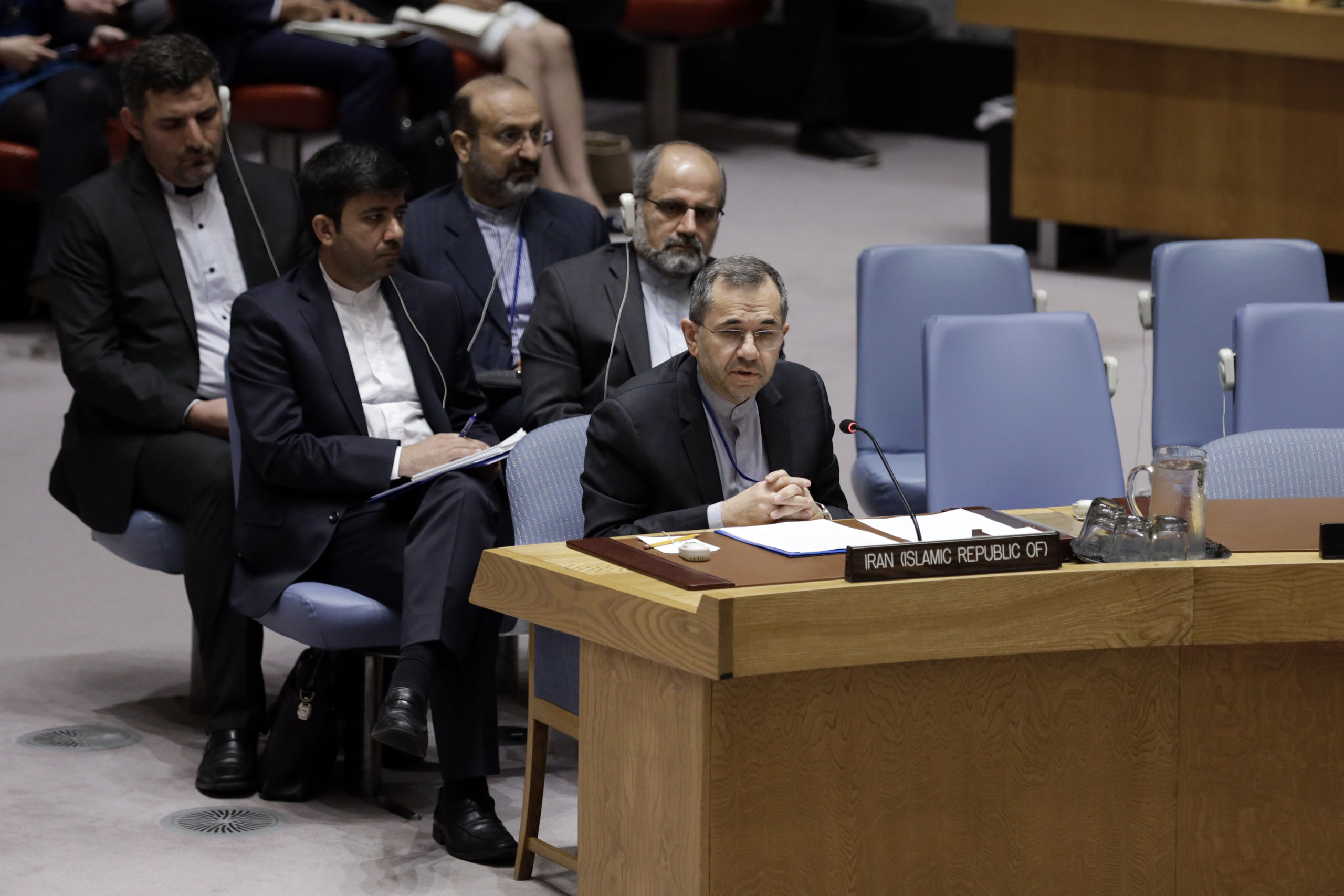
Iran’s permanent ambassador to the UN says the Islamic Republic remains committed to its international obligations on combating terrorism in all its forms and manifestations.
“Combating terrorism must be carried out in accordance with the United Nations Charter and international law, and ensuring full respect for the principles of independence and sovereign equality of States and non-interference in their domestic affairs,” Majid Takht Ravanchi said.
In a statement on “maintenance of international peace and security: security in the context of terrorism and climate change” before the UN Security Council on Thursday, Majid Takht-Ravanchi also said that the United States’ unlawful sanctions against the country have barred Iran’s access to financial resources to tackle climate change, and hampered the Islamic Republic's significant steps to address the worldwide challenge, according to Press TV.
“The imposition of unlawful sanctions of the United States against Iran, in flagrant infringement of the basic principles of international law, has not only prevented our access to much needed financial resources and technological means to tackle challenges associated with climate change, but has also adversely affected our national capacities to carry out our respective undertakings in this regard,” he said.
Back in 2018, the US began to unilaterally target Iran with a so-called maximum pressure policy that includes harsh sanctions tightly restricting Iran’s access to its own funds and preventing the country’s oil sales, a vital lifeline for the Iranian economy.
Takht-Ravanchi said that, unlike terrorism, climate change is a development issue, and “there is no scientific evidence establishing a direct link between climate change and international peace and security.”
Accordingly, he continued, the challenges of climate change should be addressed within the context of sustainable development.
“The imposition of unlawful sanctions of the United States against Iran, in flagrant infringement of the basic principles of international law, has not only prevented our access to much needed financial resources and technological means to tackle challenges associated with climate change, but has also adversely affected our national capacities to carry out our respective undertakings in this regard,” he said.
The ambassador also said that the negative effects of climate change and their consequences on the well-being of nations are undeniable, adding that they become severe when other underlying factors in conflict-ridden countries come into play.
“Addressing such challenges requires a systematic and coordinated response by all member states. We share the views that the United Nations Framework Convention on Climate Change is the most appropriate platform for such coordinated response,” he added.
Addressing the meeting, UN Secretary-General Antonio Guterres said, “We are in a race against the clock and no one is safe from the destructive effects of climate disruption.”
He also said that regions that are most vulnerable to climate change also suffer from insecurity, poverty, weak governance, and the scourge of terrorism.
